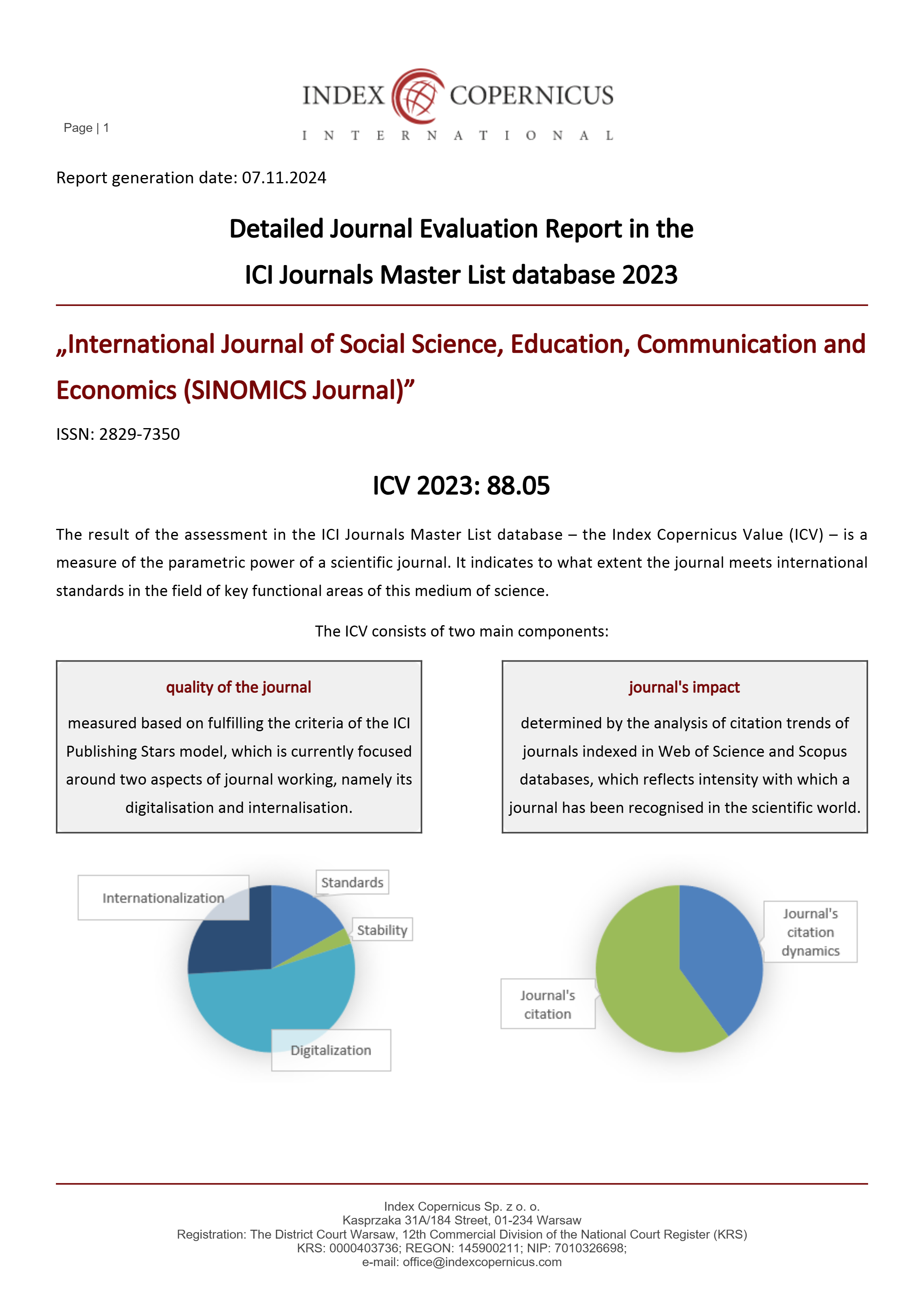The Influence of Work Discipline and Supervision on Work Performance with Job Satisfaction as an Intervening Variable in the Women's Empowerment Service for Child and Community Protection in Binjai City
Main Article Content
Mira Yanti Rawi
Muhammad Isa Indrawan
This study aims to analyze the effect of work discipline and supervision on work performance with job satisfaction as an intervening variable. This research was conducted at the Women's Empowerment, Child and Community Protection Office, Binjai City. The population in this study was 80 employees and the sample used was saturated sample technique. Data collection was carried out by distributing questionnaires. Sources of research data using primary data sources. The research model used is path analysis and the measurement tool is Samart PLS version 3.3.3. The results of the study are as follows: Work Discipline has a positive and significant effect on Job Satisfaction. Work Discipline has a positive and significant effect on work performance. Job satisfaction has a positive and significant effect on work performance. Supervision has a positive and significant effect on job satisfaction. Supervision has a positive but not significant effect on work performance. Work Discipline influences Work Performance and Job Satisfaction and can become an intervening variable for Work Discipline and Work Performance. Supervision has an effect on Job Performance and Job Satisfaction capable of being an intervening for Supervision and Work Performance.
Dharma, Surya. 2018. “Manajemen Kinerja: Falsafah Teori dan Penerapannya”. Pustaka Pelajar, Yogyakarta.
Dt. Majo Basa, Y., & Isa Indrawan, M. . (2023). The Influence of Organizational Culture and Motivation on Performance with Competence as an Intervening Variable in the Financial Management Agency Regional Income and Assets of Binjai City. SINOMIKA Journal: Publikasi Ilmiah Bidang Ekonomi Dan Akuntansi, 2(2), 297–312. https://doi.org/10.54443/sinomika.v2i2.1294
Effendi, Usman. 2014. Asas-Asas Manajemem. Depok: Katalog Dalam Terbitan (KDT).
Fahmi, Irham, 2014. Manajemen Keuangan Perusahaan dan Pasar Modal. Jakarta: Mitra Wacana Media.
Ghozali, Imam. 2013. Aplikasi Analisis Multivariate dengan Program IBM SPSS. Yogyakarta: Universitas Diponegoro
Hair, J. F. et. al. 2017. A Primer on Partial Least Squares Structural Equation Modeling (PLS-SEM). SAGE Publications, Los Angeles
Hasibuan, Malayu. (2017). Manajemen Sumber Daya Manusia. Jakarta: Bumi Aksara.
Handoko, T. Hani. (2014). Manajemen Personalia dan Sumberdaya Manusia. Yogyakarta: Penerbit BPFE.
Robbins, Stephen P. (2001). Perilaku Organisasi: Konsep, Kontroversi, Aplikasi, Jilid 1, Edisi 8, Prenhallindo, Jakarta.
Siagian, Sondang P, 2014, Teori Motivasi Dan Aplikasinya, Bina Aksara Jakarta
Sekaran, Uma. (2014). Metodologi Penelitian Untuk Bisnis (Research Methods for Business) Buku 1 Edisi 4. Jakarta: Salemba Empat.
Sitepu, B., & Indrawan, M. I. (2023). The Influence of the Availability of Work Facilities on the Work Effectiveness of Employees with Competency as Intervening Variables in the Defense Service Food and Agriculture City of Binjai. International Journal of Economics, Management and Accounting, 1(2), 47-56.
Sugiyono. (2013). Metode Penelitian Kuantitatif, Kualitatif dan R&D. Bandung: Alfabeta.CV
Sutrisno, Edy. 2016. Manajemen Sumber Daya Manusia. Cetakan Kedelapan. Jakarta: Prenadamedia Group
Sudaryo, Yoyo., Agus Aribowo, Nunung ayu Sofiati. 2018. Manajemen Sumber Daya Manusia, Kompensasi Tidak Langsung dan Lingkungan Kerja Fisik. Yogyakarta: Penerbit Andi.
Viethzal Rivai. (2013). Manajemen Sumber Daya Manusia Untuk Perusahaan. Jakarta: Penerbit Raja Grafindo Persada.










